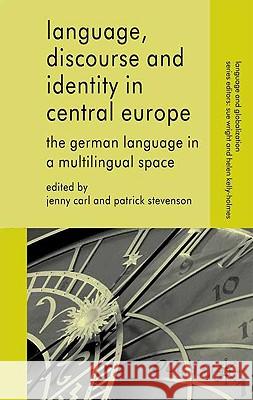Language, Discourse and Identity in Central Europe: The German Language in a Multilingual Space » książka
Language, Discourse and Identity in Central Europe: The German Language in a Multilingual Space
ISBN-13: 9780230224353 / Angielski / Twarda / 2009 / 268 str.
Central Europe has always been a highly multilingual region but how has this been affected by the social and political transformations of the last 20 years? The German language in particular has long played a key role in processes of identification here: but what role is the relationship between German and other languages playing today in the reshaping of societies and communities in this rapidly changing region? How is this relationship articulated in discourses on language and language ideologies? How is it manifested in individual repertoires and social practices? How is it determined by social and cultural policies? How is it exploited in the construction of European identities? These are just some of the questions addressed in this book, in which individual studies explore language practices in the multilingual contact zones of central Europe and the impact of both past and present migrations. Analysing a wide range of sources from media texts to language biographies and from business meetings to salsa classes, the authors demonstrate the local effects of global processes and some of the many ways in which language figures in contemporary social change.











